The Alco C855 locomotives is a locomotive that Union Pacific should have never considered purchasing.
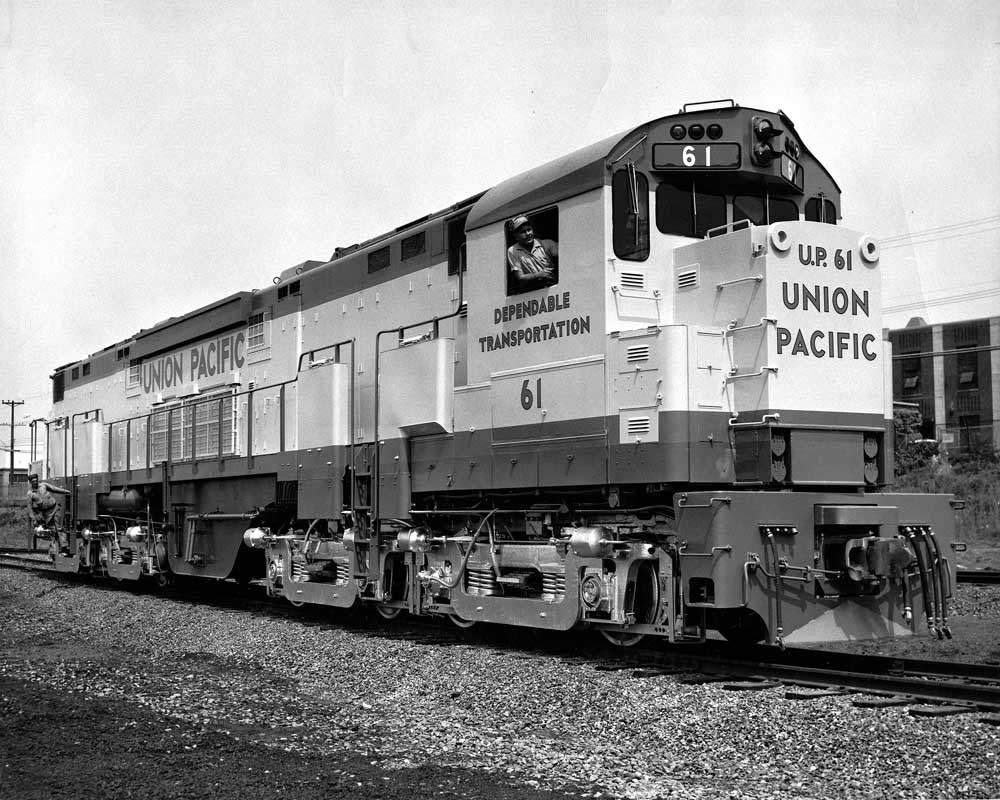
The railroad’s operating department had always favored big motive power to move its mainline trains; just look at its 4-12-2 Union Pacifics, 4-6-6-4 Challengers, and 4-8-8-4 Big Boys in steam days. That philosophy carried over to a fleet of large gas turbines and eventually dual-engined diesel locomotives in a variety of models from builders EMD and General Electric. But where Alco thrived in creating large, state-of-the-art steam engines — the Big Boy being the perfect example — it tripped up when coming up with supersized freight diesels.
Alco’s answer to EMD’s various model DDs and GE’s U50 series locomotives was the C855. In 1964 Union Pacific bought three. Officially, the builder cataloged these eight-axle units riding on four two-axle trucks as DL855A for the cab units, and DL855B for the cabless booster.
With two Alco 251C engines churning away on a single platform cranking out 5,500 hp, it was sound in theory, but the builder was already suffering from hit-or-miss sales with its “regular-sized” four- and six- axle road units. Some railroads liked them; just as many passed. UP, it should be noted, had previously purchased 10 Alco C630s and found them wanting in comparison to the myriad EMD and GE designs already online. The order was not repeated, and they wound up being sold off before their theoretical retirement age.
To be fair, the C855s were assigned probably one of the worst assignments in North America; UP’s main line up and over Sherman Hill between North Platte, Neb., and Ogden, Utah. But while the competition managed to cope with the railroad’s demands, the Alcos faltered. They would freeze up in extremely cold weather conditions, were not the smoothest ride for the crews, and, as far as the railroad was concerned, mechanical orphans.
The trio was usually kept together and after suffering numerous mechanical failures were pulled from the active roster, eventually being scrapped in 1972. When they worked, they worked well, and were considered great pullers. Still, with no repeat orders, the Alco C855 locomotives became roster oddities on a railroad with few other Alco diesel products.
Could future orders and builder modifications have made them better overall locomotives? Probably. But in reality, in the world of diesel motive power it didn’t matter; by that time Alco was out of the locomotive business.






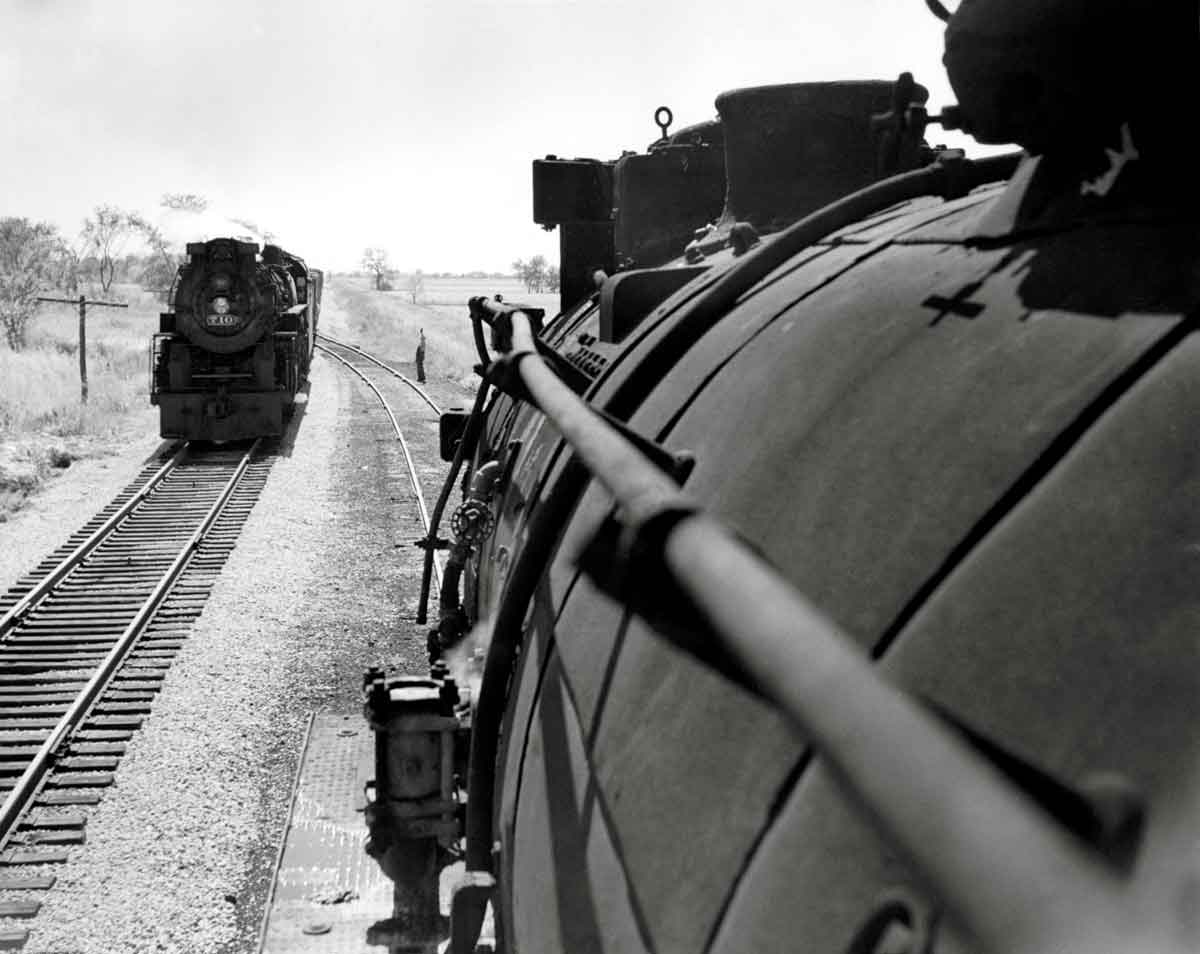
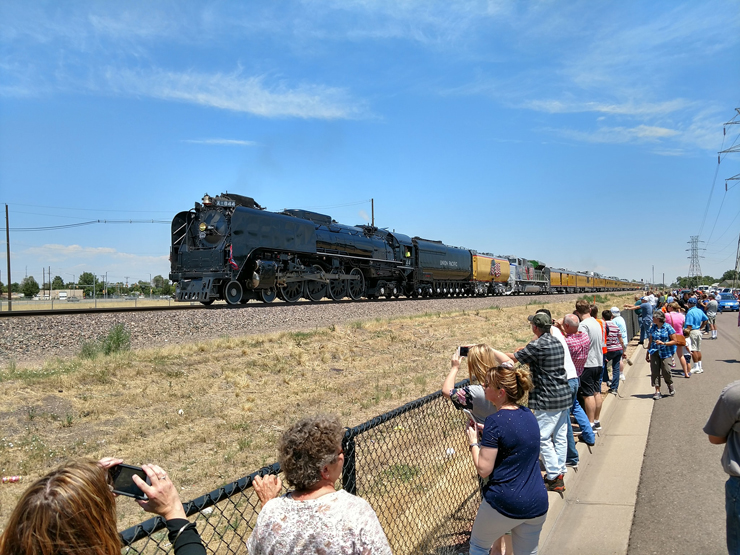
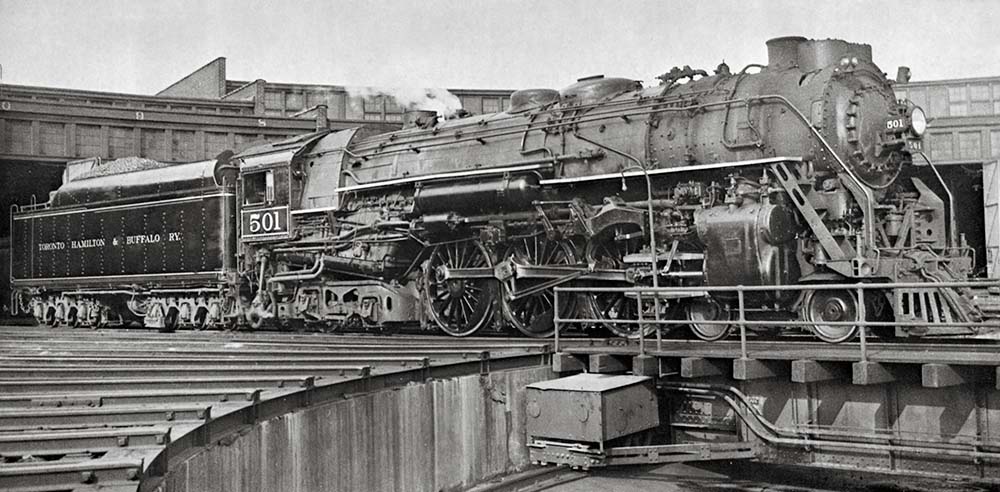
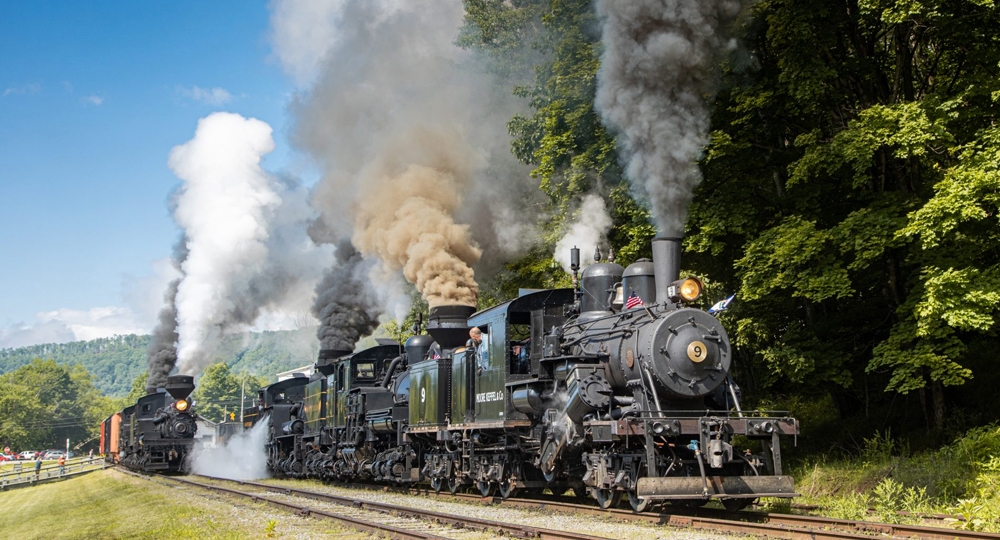


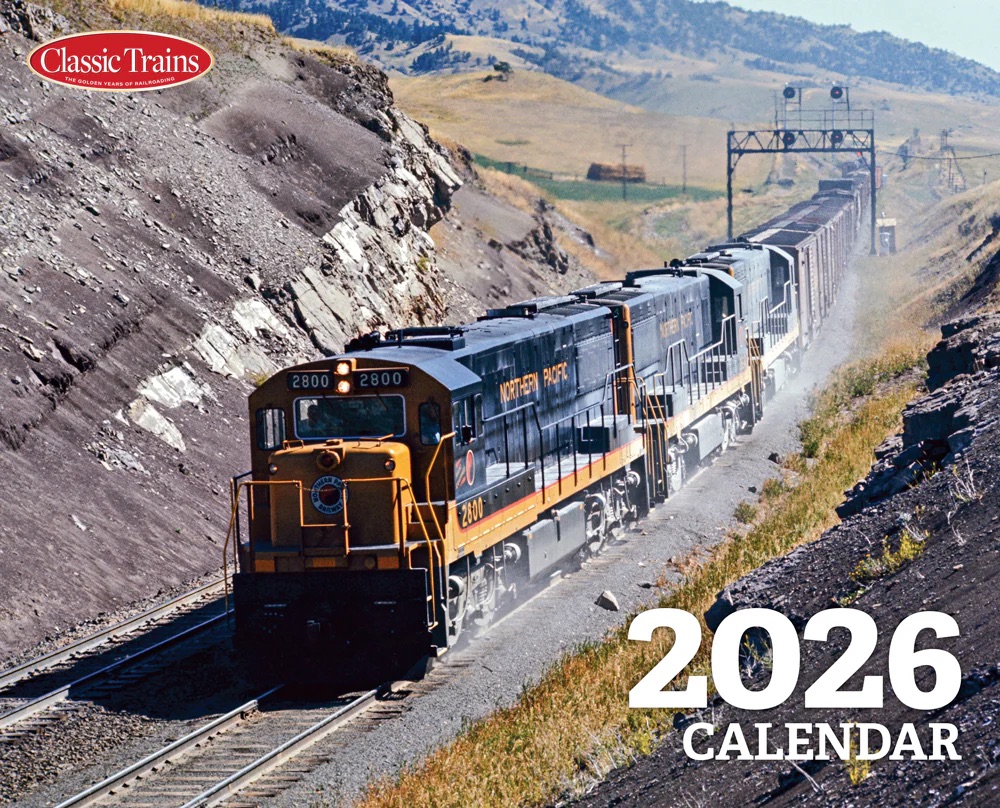

I worked in the UP Ogden roundhouse in 1968 and was told by a veteran engineer that if all three of them were working and if you could connect Ogden to them, they could pull the whole town up the Wasatch. IF!
Darrell, you’re right. Thanks for the correction.
In the 1960’s union Pacific had experimented with super sized locomotives when as the railroad invited the top diesel locomotive builders to make a model just for UP when from EMD came the DD series as GE made a model from its U-boat line named the U-50 as Alco unveiled the C-855.
The chronology is a bit off: The C855 preceded the UP C630s by almost two years